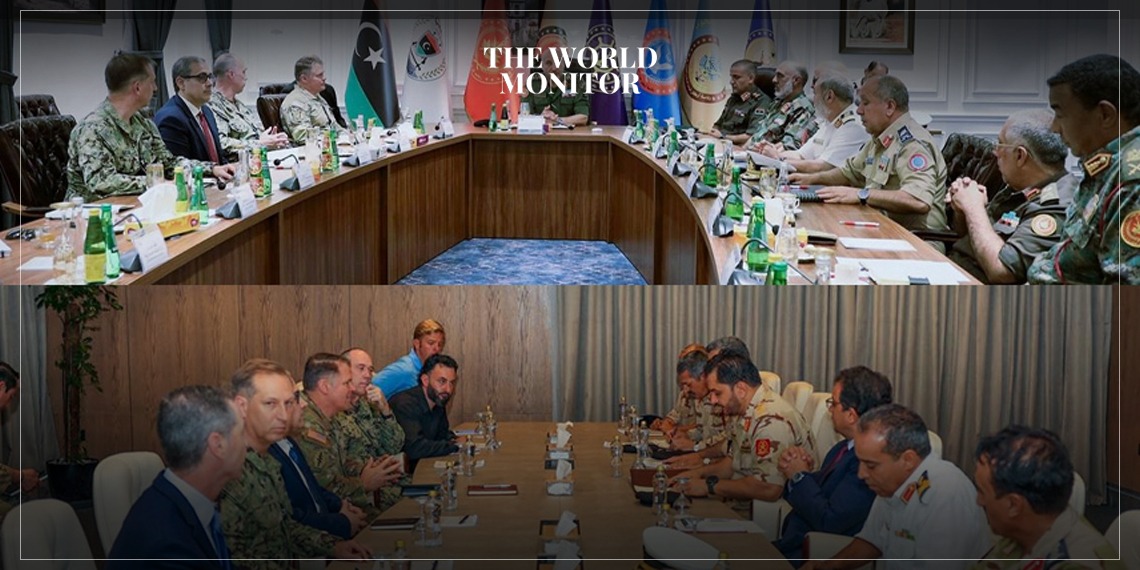The US State Department has highlighted several significant obstacles to foreign investment in Libya, including governmental division, the threat posed by armed groups, and widespread corruption and bureaucracy. Despite the potential for both local and foreign investment in the country, these challenges persist.
In its 2024 report on the investment climate in Libya, the State Department stated, “Libya faces difficulties in the investment environment despite the significant potential arising from the need for reconstruction, consumer demand, and rich natural resources.”
The report noted a dramatic decline in net foreign direct investment in Libya, from $2.7 billion in 2010 to $50 million in 2022. It also emphasized Libya’s long history of failing to comply with contractual commitments and timely payments, with the oil, gas, electricity, and infrastructure sectors attracting the most investment.
The report acknowledged the interest shown by the “interim Government of National Unity” in attracting foreign investment and cooperating with international companies.
However, it pointed out several hurdles to foreign investment in Libya, such as bureaucracy, complications from the division of state institutions, cumbersome regulations, and rampant corruption in public administration, as well as threats from armed groups.
The State Department underscored Libya’s vast potential for both local and foreign investment, citing its status as the holder of Africa’s largest proven oil reserves and the fifth-largest natural gas reserves.
Hydrocarbon exports account for nearly 97% of government revenues, and Libya produces approximately 1.2 million barrels of oil per day.
Despite this potential, oil production frequently faces disruptions due to demands for better services or political concessions from various groups.
The report referenced recent disruptions in the southern region, which led to the closure of Libya’s largest oil field, Al Sharara, in January.
The report also noted that efforts by the Ministry of Oil to exert political influence over the National Oil Corporation have sometimes complicated operations for companies in the sector.
Despite these challenges, the National Oil Corporation continues to lay the groundwork for long-term development and stability in the energy sector.
The report highlighted the deeply rooted corruption within Libya’s government institutions, as reported by Transparency International and informed local sources.
The lack of clear and accountable mechanisms for managing oil reserves and revenues, awarding government contracts, and enforcing regulatory frameworks provides ample opportunities for exploitative and corrupt activities by government officials.
Libya lacks a clear and transparent regulatory structure, with poorly defined roles and responsibilities for government institutions. Compliance with these roles and responsibilities is often incomplete.
In the 2023 Corruption Perceptions Index by Transparency International, Libya ranked 170th out of 180 countries. It also ranked 186th out of 190 countries in the World Bank’s Doing Business Index.
The State Department described Libya’s bureaucracy as among the most complex and opaque in the Middle East and North Africa region, with difficult-to-understand legal and political frameworks.
The process for obtaining licenses and permits often faces unjustified delays, with decisions frequently based on biased and non-transparent criteria, facilitating corruption and exploitation.
There is no public consultation or publication of draft regulations before they are enacted, making it difficult to find reliable and up-to-date information on key business regulations. These factors have discouraged foreign investment.
Libya neither encourages nor mandates companies to report on environmental, social, and governance practices to promote transparency. The Central Bank imposes capital restrictions, limiting Libyans’ ability to access foreign currency for overseas investments.
Current banking practices restrict access to foreign currency primarily through letters of credit or credit cards. The Central Bank has imposed limits on SWIFT transfers, making official overseas investment practically impossible for citizens.
The State Department noted the ongoing governmental division in Libya since the signing of the 2020 ceasefire agreement, which led to the formation of the first unified government since 2014, the “interim Government of National Unity.”
However, the postponement of the elections scheduled for December 2021 has resulted in this government continuing to manage the country temporarily, with its influence limited to the western region. Meanwhile, the “General Command” and the House of Representatives government maintain effective control in the eastern and southern regions.






